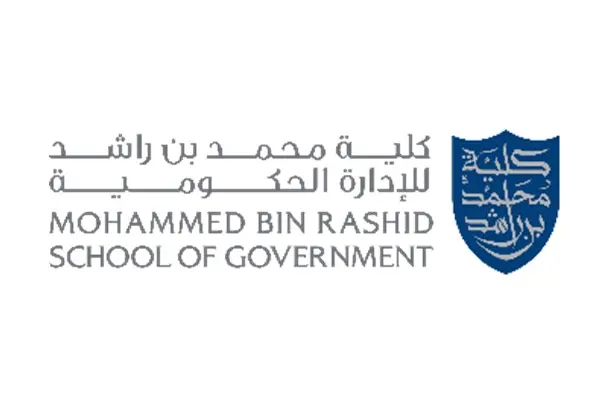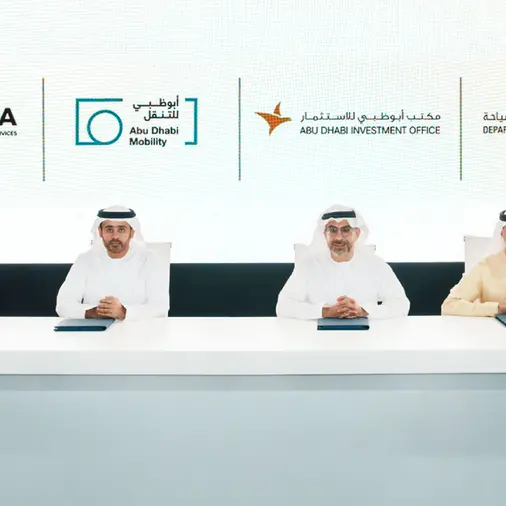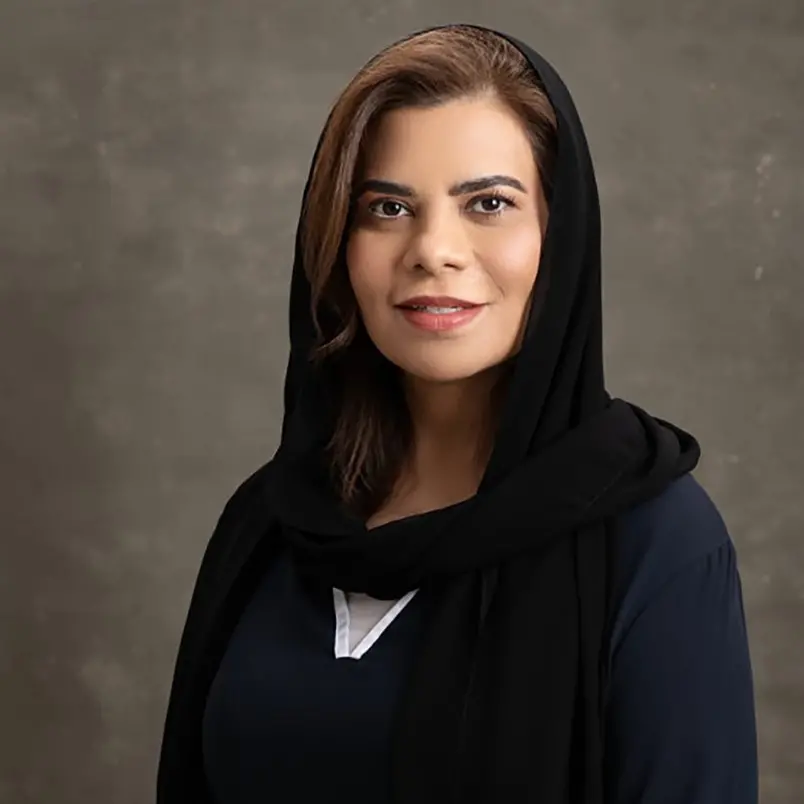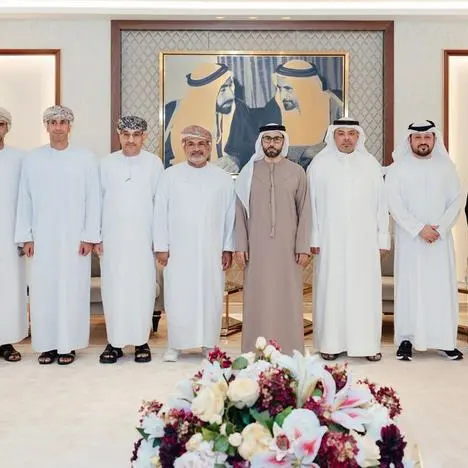PHOTO
- The programme is developed in collaboration with UAE’s Artificial Intelligence, Digital Economy, and Remote Work Applications Office, and includes a 4.5-day workshop based on the training developed by the Institute of Electrical and Electronics Engineers (IEEE).
Dubai, UAE - The Mohammed Bin Rashid School of Government (MBRSG) has launched the AI Ethics Assessment Programme, which includes the IEEE CertifAIEd™ curriculum developed by the Institute of Electrical and Electronics Engineers (IEEE), as part of its executive education series of courses.
The programme is developed in collaboration with the UAE’s Artificial Intelligence, Digital Economy, and Remote Work Applications Office, and will be held from 26 to 30 May 2025, at the MBRSG headquarters in Dubai.
Organising the programme aligns with MBRSG’s commitment to supporting smart transformation and empowering leaders and decision-makers to navigate rapidly unfolding events in the artificial intelligence (AI) sector. To that end, the programme aims to develop institutional models for ethical and responsible use of smart technologies, in line with the UAE’s national strategy to firmly establish its global status as a leader in the AI sector and strengthen community awareness about the ethical aspects pertaining to AI systems.
This, in turn, resonates with the forward-thinking vision announced by His Highness Sheikh Mohammed bin Rashid Al Maktoum, Vice President and Prime Minister of the UAE, Ruler of Dubai, to include artificial intelligence as a subject in academic curricula, in an effort to create a generation of students that can master future tools, and lead the way with a science-backed, ethical approach that keeps up with global digital transformations.
Furthermore, the programme is designed to enable participants to assess Autonomous Intelligent Systems (AIS) against benchmarks of transparency, accountability, privacy, and algorithmic bias mitigation, in line with the IEEE CertifAIEd™ framework, offering participants a unique opportunity to earn the IEEE CertifAIEd™ Assessor qualification, widening their prospects to enhance ethical compliance at institutions.
His Excellency Dr. Ali bin Sebaa Al Marri, Executive President of MBRSG, said: “Launching the AI Ethics Assessment Programme reaffirms our commitment at the Mohammed Bin Rashid School of Government to thoroughly prepare our national talents to develop sound policies in the area of artificial intelligence, striking a balance between technological advancement and ethical responsibility. This, in turn, allows for establishing an advanced knowledge-based environment that supports the UAE’s vision to create an exemplary model in digital governance to be emulated around the world.”
“The programme aims to enable participants to assess Autonomous Intelligent Systems according to IEEE CertifAIEd™ framework, empowering them to address the ethical challenges of emerging technologies and to develop well-informed strategies that support responsible innovation and promote transparency and accountability in smart applications,” H.E. added.
Dr. Al Marri asserted that training leaders in this field is a strategic step towards building a more secure and trustworthy digital ecosystem that ensures sustainable growth and enhances community trust in AI applications, setting the stage for a new phase of tech governance that places human values at the heart of the digital transformation journey.
For his part, Alpesh Shah, Managing Director of the IEEE Standards Association, said: “Confidence in artificial intelligence technology plays a vital role in the deployment of these systems across various industries, particularly in financial systems that require the highest degree of transparency and adherence to ethics. With that in mind, the IEEE CertifAIEd™ programme provides a clear framework for evaluating smart applications, services, and systems against rigorous criteria, meeting requirements for transparency, privacy, algorithmic bias, and accountability.” By adopting IEEE CertifAIEd framework, organizations can navigate the complexities of AI deployment responsibly. And it is telling to see the global nature of our work make a significant impact to enable businesses, governments, and experts in aiding to achieve their capacity, literacy, and expertise aims.
The governance of AI systems is a strategic materiality that all organizations must embed as a part of an ever-evolving digital world. Core to this is that societal well-being is an inherent factor in introducing, developing, and deploying artificial systems into existing and emerging ecosystems. The commitment to educate the next generation of business and technology leaders through this integrated program better prepares organizations to systematically design solutions that benefit people and the planet. It also enables these organizations to introduce AI systems and solutions that their stakeholder ecosystems may more confidently engage with.
Through the collaboration with Mohammed Bin Rashid School of Government, and the UAE’s Artificial Intelligence, Digital Economy, and Remote Work Applications Office we see a desire to empower the next generation to be more proactive in these regards.
The programme is designed for working professionals across various industries, specifically those in the areas of strategy, compliance, data governance, technology, and innovation. These include compliance officers, data protection officers, technical advisors, product developers, operations and risk managers, and AI and data science experts.
The intensive training sessions cover various key subjects, including strategic principles and considerations regarding AI ethics, IEEE CertifAIEd™ criteria, ethical assessment of smart applications and services, and ethical considerations of generative AI. Also included are practical training sessions and an exam to earn the CertifAIEd™ Assessor qualification.
Moreover, the programme provides a comprehensive framework for assessing institutional gaps in AI systems and developing future compliance strategies, which enhances institutional preparedness for upcoming governance requirements.
Successfully completing the programme is a key prerequisite for progressing to listing on the IEEE CertifAIEd™ Assessors network, whose members can guide institutions in their efforts to build smart systems that balance innovation and ethics, and enable a sustainable technological transition, which, in turn, expands their professional and global prospects.
The programme provides participants with a globally recognized IEEE certificate, along with an opportunity to engage with global AI and ethics experts, in the region, most notably: Dr. Fadi Salem, MBRSG’s Director of Policy Research and international AI policy expert; Akmaral Orazaly, AI ethics policy expert and developer of AI ethics tools in Dubai.
The Mohammed Bin Rashid School of Government continues its efforts to empower future leaders with applied knowledge and strategic thinking through pioneering programmes that contribute to the development of public policies and effective governance models that respond to the challenges of the digital era.




















